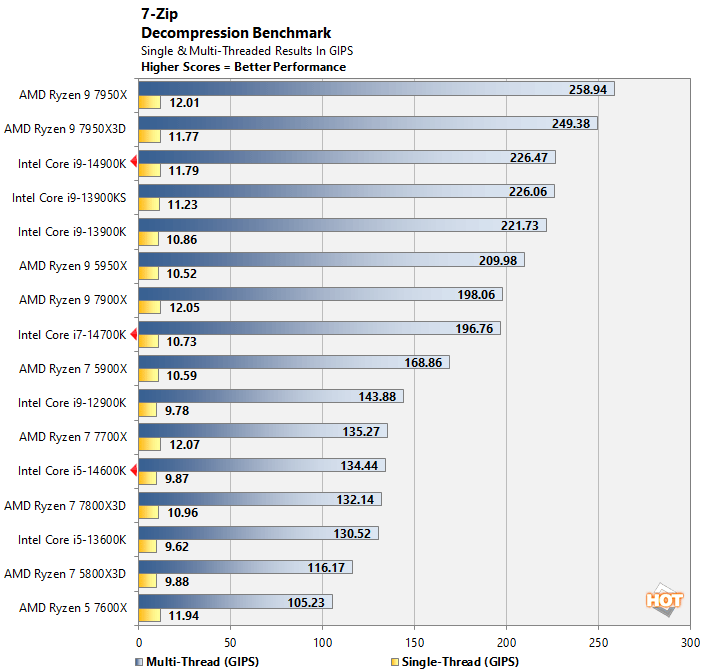Intel 14th Gen Core Raptor Lake Refresh Benchmarks: MOAR Power
Intel 14th Gen Core Processors: CPU, System, And Web Application Benchmarks
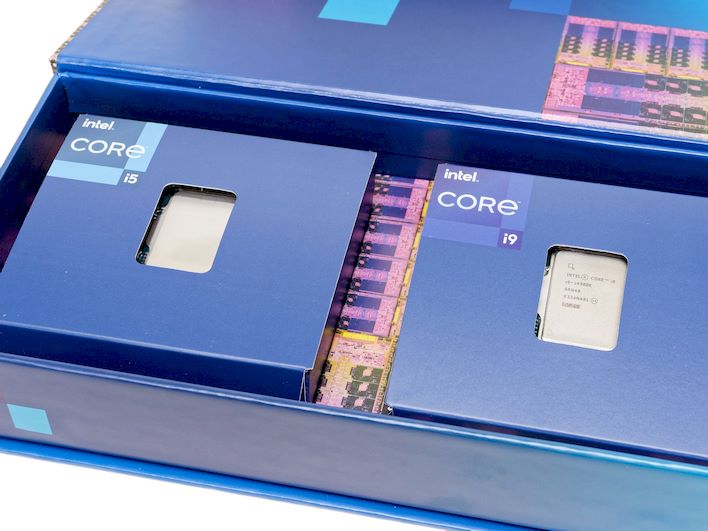
When the Windows installation was complete, we installed all of the drivers necessary for our components, disabled Auto-Updating and Windows Defender, and installed all of our benchmarking software. When that process was done, we performed a disk clean-up, cleared any temp and prefetch data, processed idle tasks, and optimized all of the SSDs using Windows' built-in utility. Finally, we enabled Windows Focus Assist to minimize any potential interruptions and let the systems reach an idle state before invoking any tests.
HotHardware's Test Systems:

SiSoft SANDRA 2021 Benchmarks
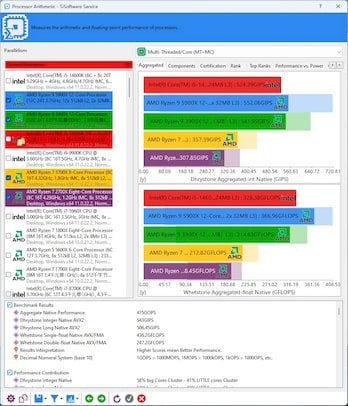 Core i5-14600K CPU |
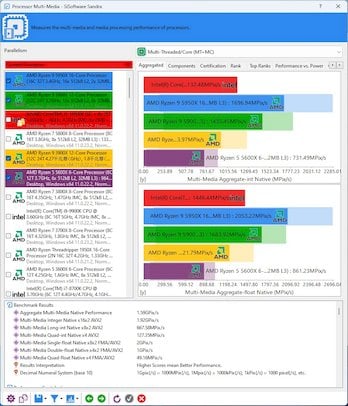 Core i5-14600K Multimedia |
 Core i5-14600K Memory |
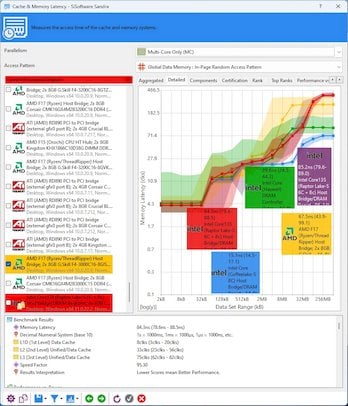 Core i5-14600K Cache |
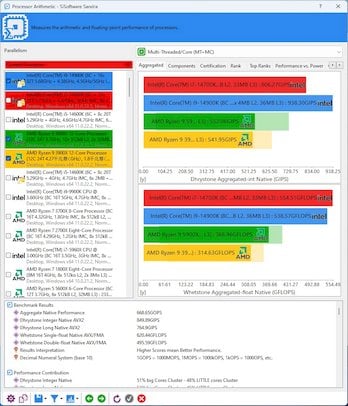 Core i7-14700K CPU |
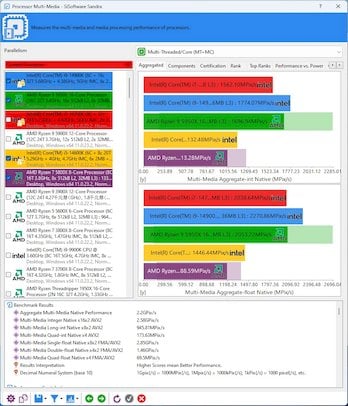 Core i7-14700K Multimedia |
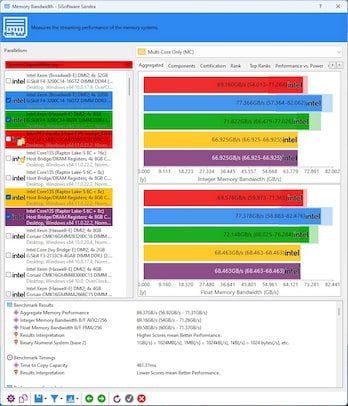 Core i7-14700K Memory |
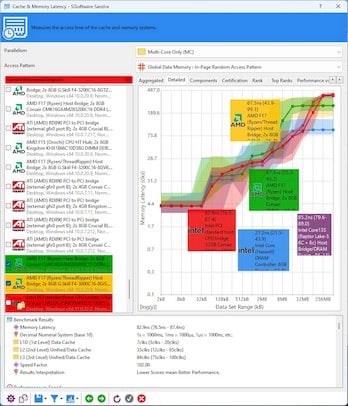 Core i7-14700K Cache |
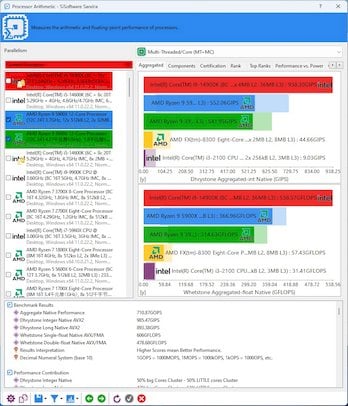 Core i9-14900K CPU |
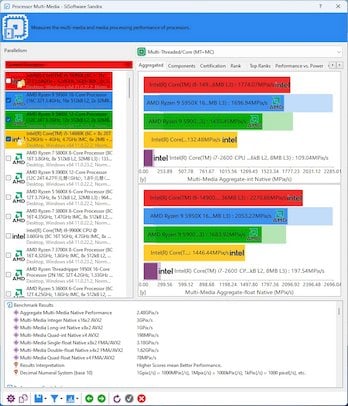 Core i9-14900K Multimedia |
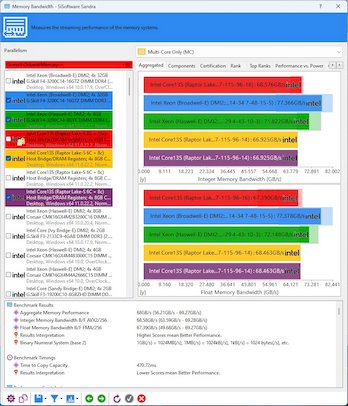 Core i9-14900K Memory |
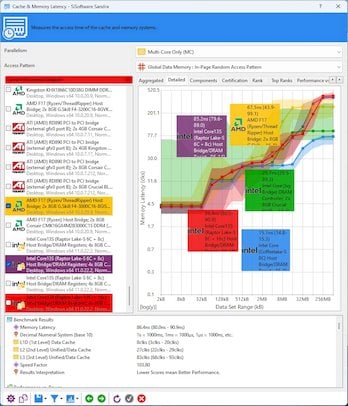 Core i9-14900K Cache |
SANDRA's CPU Arithmetic test puts the Core i5-14600K just north of 415GOp/s with the flagship Core i9-14900K topping 710GOp/s, and the Core i7-14700K finishing not too far behind at 668GOp/s. The Multimedia test has the Core i5-14600K, Core i7-14700K and Core i9-13900K finishing at 1.59Gpix/s, 2.2Gpix/s, and 2.48Gpix/s, respectively, with the top-end 24-core chip obviously putting up the highest score. Finally, aggregate memory bandwidth with all three of the processors hovers between 68GB/s - 70GB/s with the particular Corsair memory kit we used.
AIDA64 Memory Bandwidth, Memory Latency & Cache Latency
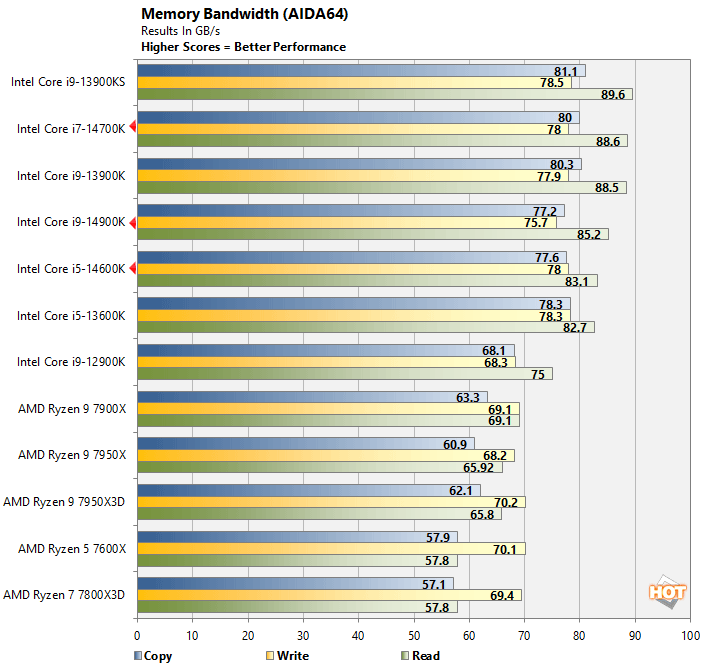
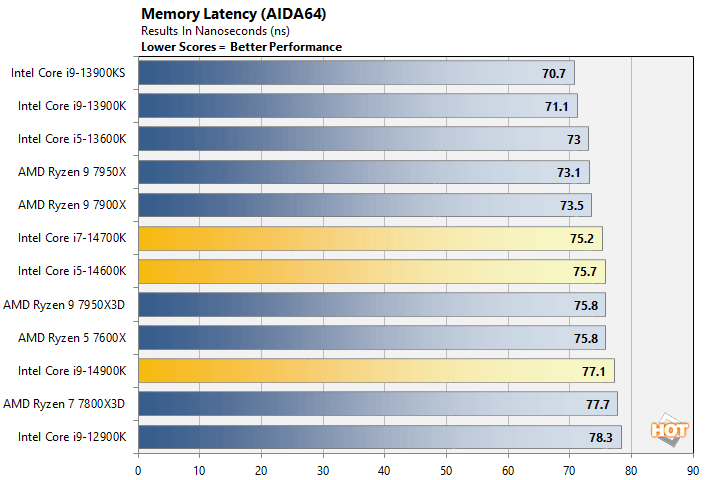
Although we used the same memory kit and settings with the new 14th Gen Core processors, memory latency was somewhat higher than their 13th Gen counterparts. Less than 8ns separates the first and last place finishers here, though, so we're not talking about massive disparities.
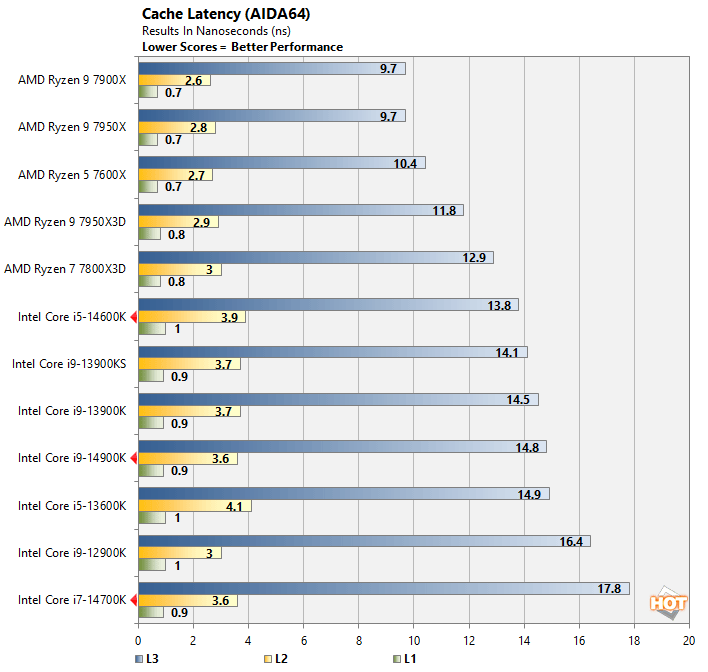
Geekbench v5.4.1 CPU Benchmark With Raptor Lake
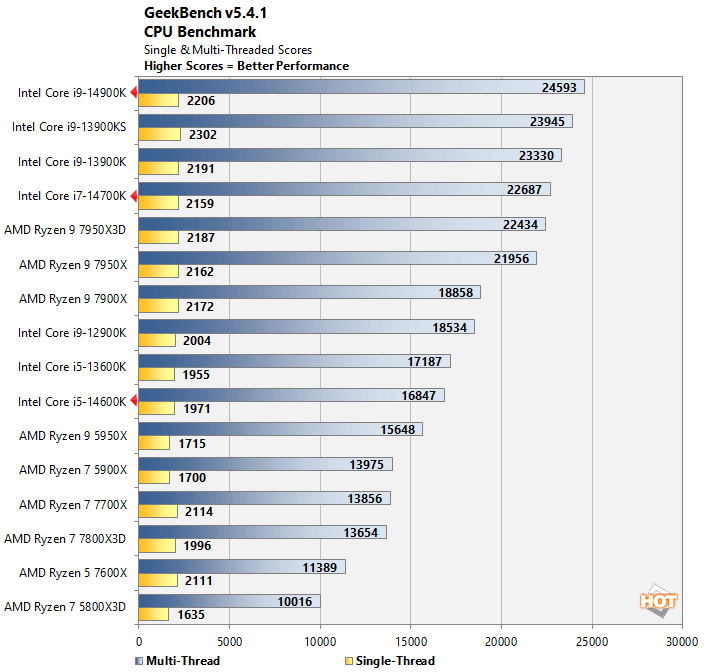
The Core i9-14900K led the pack in terms of multi-threaded performance in Geekbench, and trailed only the 13900KS in the single-threaded test. The Core i7 also performed very well, but the Core i5-14600K ended up trailing the 13600K in the multi-threaded test -- its single-threaded score was better, however.
UL PCMark 10 Benchmarks
Next, up we have some full-system testing with PCMark. We're reporting all test results from the PCMark 10 benchmark suite, including the Essentials, Productivity, Digital Content Creation and and total PCMark score. The Essentials test covers workloads like web browsing, video conferencing and app start-up times, while Productivity tests everyday office apps from spreadsheets to word processing. Finally, the Digital Content Creation test evaluates performance of a machine with respect to photo and video editing, as well as rendering and visualization.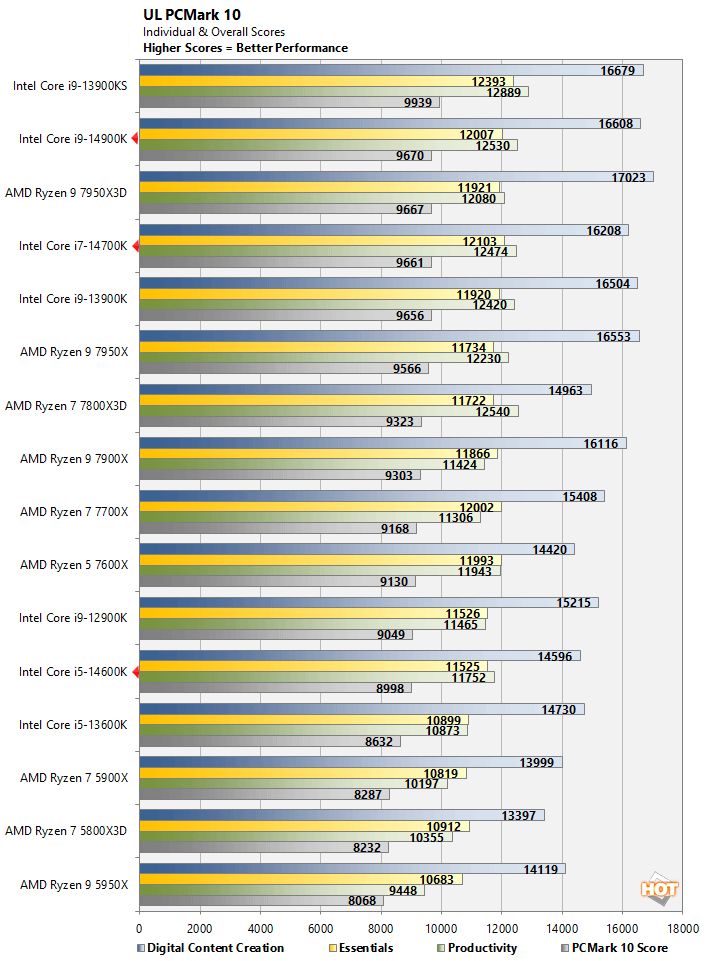
Although nothing could quite catch the Core i9-13900KS, the Core i9-14900K had no problem outgunning the "standard" Core i9-13900K, and the Core i5-14600K also skipped past its previous-gen counterpart.
Browser & Web App Benchmarks: Jetstream 2 And Speedometer 2
These benchmarks measure performance of an array of browser-based technologies used on modern, rich web applications. Scores in these benchmark are an indicator of the performance users would see when browsing the web and running advanced web apps. All of the systems were tested using the latest version of Microsoft's Edge browser, with default browser settings, on a clean, fully-updated install of Windows 11.
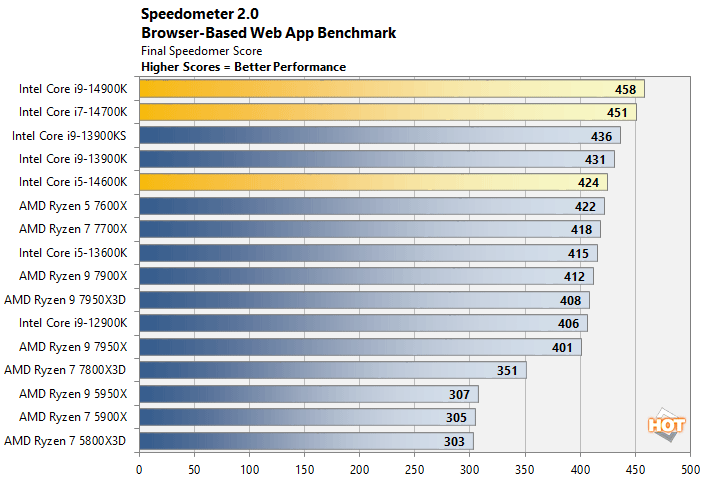
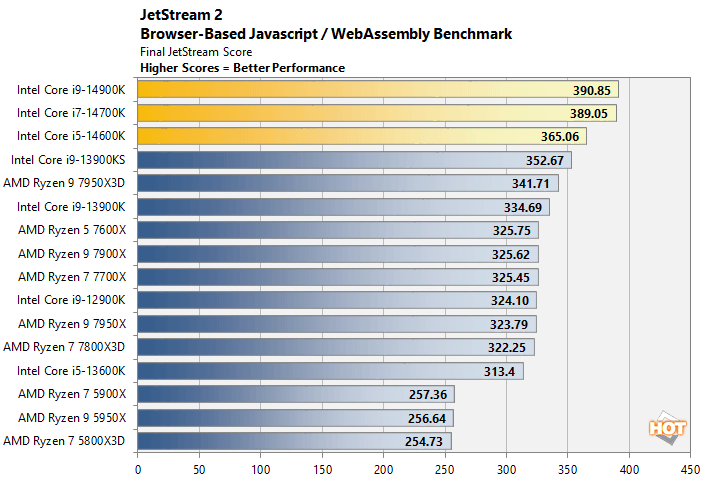
7-Zip Data Decompression Tests
